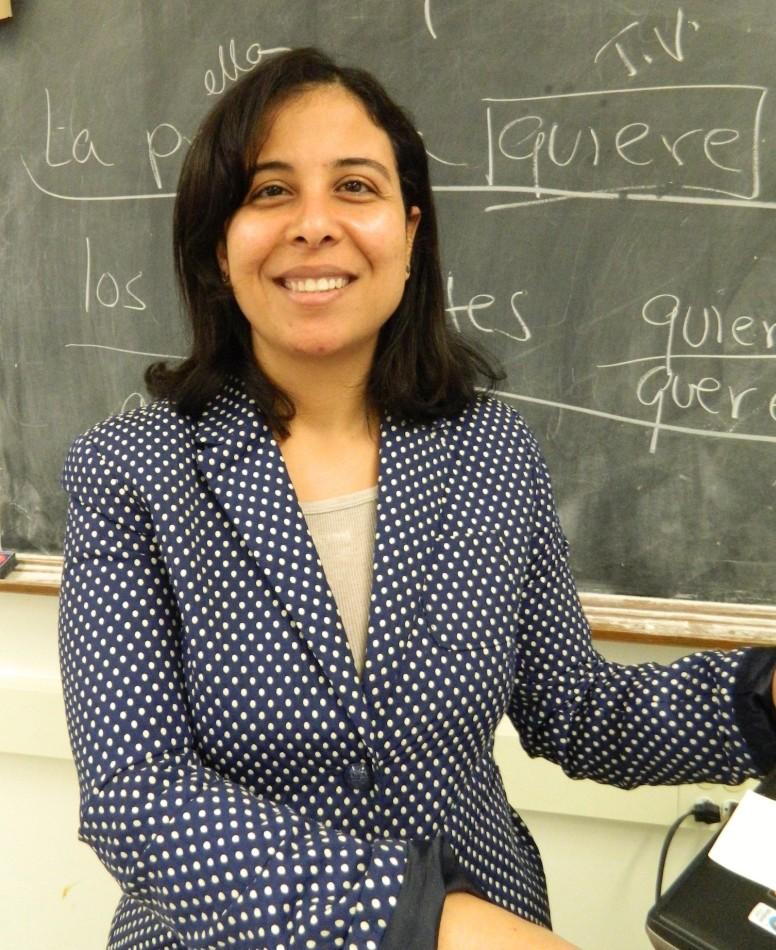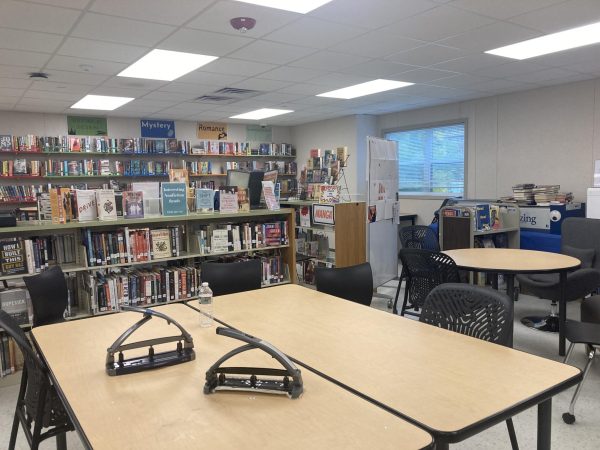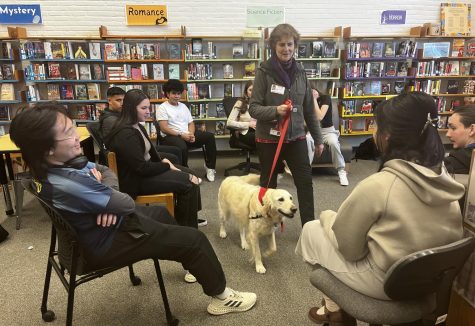Arabic teacher learning as well
Malak shares culture, language in Watertown schools
This year, Watertown public schools were given a one-year government grant for a foreign exchange teacher to teach Arabic at the middle school and high school.
Watertown is one of only seven schools in the state to offer Arabic. The town looks at Arabic as a language that is important to an ever-changing world.
“The goal of the program is to get the students to know the Arabic culture and language, and for me to learn about American culture and the education system here,” says the teacher, Teriza Malak, a native-born Egyptian.
Her students have learned a lot in the first few months, considering the difficulty of the language. One of the most important parts of the language is the alphabet, which has been a challenge for many students.
Arabic has 28 letters which connect in three ways each. So, in total, there are 84 characters for students to learn. The students learn basic vocabulary, numbers, time telling, and greetings, as well.
In another effort to learn about the Arab world, students had to make projects about individual parts of Arab culture and geography. All students researched individual countries, as well as parts of Middle Eastern identity, such as its music, art, food, fashion, and religion.
This “culture” part of the class is what makes the class unique. This is largely because of its attempt to teach about a region of the world that most Americans do not know a lot about, despite our country’s involvement in it.
One of the central parts of the program is Ms. Malak.
A high school teacher in Egypt, Ms. Malak came to the United States to live and learn about the American way of thinking and teaching.
“It’s not easy for me to live in the US, but I’m learning more every day about the American way of life,” says Malak.
According to Malak, there are many differences between the Egyptian and American education systems.
“Students are more focused on achieving a certain goal in Egypt,” she says.
“In America, there is homework, projects, and extracurricular activities, but in Egypt, it is all about passing exams. If you do well on the exam, you move on to the next grade and succeed. If you don’t, you don’t move up and succeed. It’s as simple as that. And I think, because of this, Egyptian students work harder, because they are more pressured.”
When looking at any Arabic classroom at WHS, you will find a diversity that embodies the school, in many ways.
Seeing Africans, Arabs, Latinos, Jews, and Gentiles sharing the same desire to learn a little-appreciated language shows another level of diversity.
“In Egypt,’’ says Malak, “I went to school only to teach, but here I go to school also to learn.”
–Feb. 17, 2014–
Your donation will support the student journalists of Watertown High School. Your contribution will allow us to purchase equipment and cover our annual website hosting costs.







